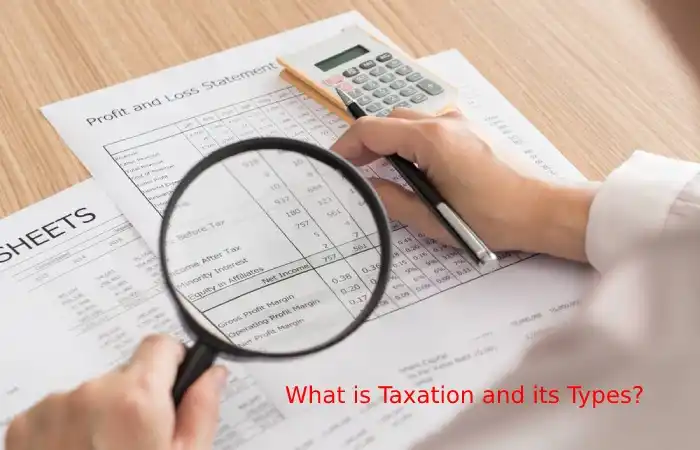 Taxation Write for us: Taxation is a system where individuals and businesses pay the government to fund its operations and services. The financial fuel keeps public infrastructure running, from schools and hospitals to roads and defense systems.
Taxation Write for us: Taxation is a system where individuals and businesses pay the government to fund its operations and services. The financial fuel keeps public infrastructure running, from schools and hospitals to roads and defense systems.
Money invents to overcome the differences of the barter system. Several economists have given definitions for cash. Money is expressed in terms of a unit. For example, rupees are the monetary unit of account in India—the value of all assets, say in rupees, in this country. The generally accepted form of money is called tax which includes coins and paper notes issued by the central bank and circulated within the economy.
Each country has its monetary unit of account and currency. It is a dollar in the USA, a Sterling pound in the UK, and a yen in Japan. European countries have an everyday money called the Euro.
Purposes of Taxation
During the 19th century, the dominant idea was that taxes should serve mainly to finance the government. In earlier times, and again today, governments have utilized taxation for other than just financial purposes. One helpful way to view the purpose of tax, attributable to American economist Richard A. Musgrave, is to distinguish between objectives of resource allocation, income redistribution, and economic stability.
What is Taxation and its Types?
A tax is a compulsory fee or financial charge electronic by any government on a separate or a society to collect revenue for public works if the best facilities and infrastructure. The accumulated fund is then used to fund different public expenditure programs.
If one fails to pay the taxes or refuses to contribute towards it will invite severe implications under the pre-defined law.
 Different Types of Taxation
Different Types of Taxation
Be it an individual or any business/organization, all must pay the respective taxes in various forms. These taxes are further subcategorized into direct and indirect taxes depending on how they are delivered to the taxation authorities.
Let us dive deeper into both types of tax in detail:
Direct Tax
The definition of direct tax hides in its name, which implies that the taxpayer pays this tax directly to the rule. The general examples of this type of tax in India are Income Tax and Means Tax. Estimating tax earnings from direct taxes is relatively easy from the government’s perspective as it directly correlates to the registered taxpayers’ income or wealth.
Direct taxes are primarily taxes on natural persons (e.g., individuals), typically based on the taxpayer’s ability to pay as measured by income, consumption, or net wealth. What follows is a description of the main types of direct taxes.
They are also commonly adjusted to consider the circumstances influencing the ability to pay, such as family status, number and age of children, and financial burdens resulting from illness. The taxes are often levied at graduated rates, meaning that the rates rise as income rises. Personal exemptions for the taxpayer and family can create a range of income subject to a zero tax rate.
 Indirect Tax
Indirect Tax
Indirect taxes differ slightly from direct taxes, and the collection method is also somewhat different. These taxes are consumption-based and applied to goods or services when bought and sold. The government receives the indirect tax payment from the seller of goods/services. The seller, in turn, passes the tax on to the end-user, i.e., a buyer of the good/service.
Thus the name indirect tax as the end-user of the good/service does not pay the tax directly to the government. Some general examples of indirect tax include sales tax, Goods and Facilities Tax (GST), Value Added Tax, etc.
What is Income Tax?
The most common type of tax eligible citizens must pay to the government. A part of your income remain paid to the government every year, which the government uses to support the growth and development activities across the country.
Income Tax Assessee
Any individual liable to file taxes and fall in the payable income tax slab is an income tax assessee. Taxation is separate from other forms of payment, such as market exchanges, in that taxation does not require agreement and is not directly tied to any services rendered. The government forces taxation through an unspoken or explicit threat of force. Tax is legally different than extortion or a protection racket because the imposing institution is a government, not private actors.
An individual with a regular income is exempted from paying tax if their included annual income is below the threshold level committee by the government from time to time or income from exempted sources such as farming.
 Income Tax Slabs
Income Tax Slabs
As mentioned earlier, not all individuals shall pay the same amount of tax; the general rule is that the higher your income, the more complex the amount of tax you will have to pay.
Property tax: A staff tax is asses by a local government and paid for by the property owner. This tax is calculated based on property and land values.
Legacy: A type of tax put on individuals who inherit the estate of a late person.
Sales tax: An ingesting tax compulsory by a rule on selling goods and services. This can be a value-added tax (VAT), a goods and facilities tax (GST), a state or regional sales tax, or an excise tax.
How to Submit Your Articles
To Write to Us, you can email us at contact@thewhoblog.com
Why Write for The Who Blog – Taxation Write for Us
 Writing for Thewhoblog can give massive exposure to your website for customers looking for Taxation. Thewhoblog presence is on Social media and will share your article with the Taxation audience. You can reach out to Taxation enthusiasts.
Writing for Thewhoblog can give massive exposure to your website for customers looking for Taxation. Thewhoblog presence is on Social media and will share your article with the Taxation audience. You can reach out to Taxation enthusiasts.
Search Terms Related to Taxation Write For Us
Virginia Department of Taxation
NYS Department of Taxation
www.state.nj.us/treasury/taxation
New York State Department of Taxation and Finance
NYS Department of Taxation and Finance
NYS Dept of Taxation
taxation without representation
NYS Dept of Taxation and Finance
taxation
NYS taxation and finance
va dept of taxation
Nevada Department of Taxation
Search Terms for Taxation Write For Us
Taxation Write For Us
Write For Us Taxation
Contribute Taxation
Taxation Submit post
Submit an article
Become a guest blogger Taxation
Taxation writers wanted
Suggest a post-Taxation
Taxation guest author
Article Guidelines on Thewhoblog – Taxation Write For Us
We at thewhoblog welcome fresh and unique content related to Taxation Write For Us.
Thewhoblog allows a minimum of 500+ words related to Taxation Write For Us.
The editorial team of thewhoblog encourages promotional content related to Taxation Write For Us.
To publish the article at Thewhoblog email us at contact@thewhoblog.com
Related Pages
Budget Deficit Write for us
Mutual Funds Write for us
Home Loan Write for us
Modern Banking Write for us
